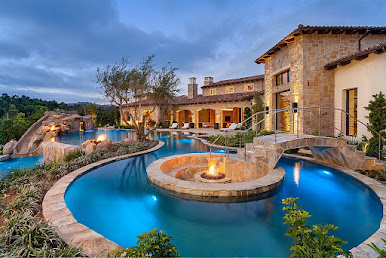Understanding Spa
Safety Inspections:
Spa safety inspections are a crucial aspect of maintaining a
secure aquatic environment at home. These inspections involve a thorough
assessment of the spa's structural integrity, water quality, and adherence to
safety standards. It's imperative to schedule regular spa safety inspections to
identify and address potential hazards before they escalate.
Qualified professionals conduct these inspections,
evaluating various components such as the spa's electrical systems, water
circulation, and the presence of any physical hazards. Investing in routine spa
safety inspections not only ensures the well-being of those enjoying the spa
but also extends the lifespan of the equipment.
Navigating Pool
Gate Regulations in Victoria:
In Victoria, pool gate regulations play a pivotal role in
safeguarding residential pool areas. A secure and properly functioning pool
gate is a critical element in preventing unauthorized access, particularly for
young children. Understanding and adhering to the specific regulations set
forth by Victoria's governing bodies is paramount for homeowners.
The regulations typically outline requirements for gate
height, latching mechanisms, and self-closing features. Regular inspections of
pool gates are essential to confirm that they meet the specified standards.
Failure to comply with these regulations can result in serious consequences,
emphasizing the importance of staying informed and proactive in maintaining a
safe pool environment.
The Role of a
Pool Safety Inspector:
A pool safety inspector is a certified professional with
expertise in assessing the safety of residential and commercial pool and spa
facilities. These inspectors play a pivotal role in ensuring that properties
comply with established safety standards. Homeowners should engage the services
of a qualified pool safety inspector to conduct thorough assessments and
provide recommendations for improvements.
During an inspection, the pool safety inspector evaluates
various aspects, including fencing, gate functionality, water quality, and the
overall safety of the pool and spa area. Their expertise enables them to
identify potential risks and guide homeowners on necessary corrective measures.
Engaging with a pool safety inspector is a proactive step toward creating a
secure aquatic space for family and friends.
Pool Safety
Compliances:
Compliance with pool safety standards is not just a legal
obligation but a moral responsibility. Homeowners must be aware of and adhere
to the prescribed safety compliances to prevent accidents and ensure a
worry-free aquatic experience. Some key aspects of pool safety compliancesinclude:
a. Fencing Requirements: A
secure and compliant fence around the pool area is often a legal requirement.
This prevents unsupervised access, reducing the risk of accidents.
b. Gate Specifications: As
mentioned earlier, pool gates must meet specific criteria, such as height,
self-closing mechanisms, and latch security.
c. CPR Signage:
Displaying CPR signage in the
pool area is a recommended safety measure, ensuring that individuals know what
to do in case of an emergency.
d. Water Quality Maintenance: Regular testing and maintenance of water
quality are essential for preventing waterborne illnesses and ensuring a safe
swimming environment.
e. Emergency Equipment: Having
essential safety equipment, such as lifebuoys and reaching poles, readily
available is crucial for swift response to emergencies.
Swimming Pool and
Spa Safety:
Beyond the technical aspects of inspections and compliance,
fostering a culture of safety around the swimming pool and spa is paramount.
Educating family members and guests about pool safety rules is a proactive step
in preventing accidents. Some key safety measures include:
a. Supervision:
Never leave children unattended
in or around the pool or spa. Designate a responsible adult as a designated
"water watcher" during gatherings.
b. Learn CPR:
Knowing CPR can be a lifesaving
skill. Consider taking a CPR course to be prepared for emergencies.
c. Teach Swimming Skills: Encourage everyone in the household to learn
how to swim. This skill significantly reduces the risk of drowning.
d. Secure Poolside Furniture: Ensure
that poolside furniture is secure and cannot be easily moved, reducing the risk
of accidents or entrapment.
Owning a home pool and spa is a delightful experience that
should always be accompanied by a commitment to safety. Spa safety inspections,
adherence to pool gate regulations Victoria, the involvement of pool safety
inspectors, and compliance with swimming pool and spa safety standards are all
integral components of maintaining a secure aquatic environment.
By prioritizing safety, homeowners not only fulfill legal
obligations but also contribute to the well-being of their family and friends.
A combination of regular inspections, compliance with regulations, and a
proactive approach to safety education can transform your home pool and spa
into a haven of relaxation and recreation, where every dip is not just
enjoyable but also secure.




Comments
Post a Comment